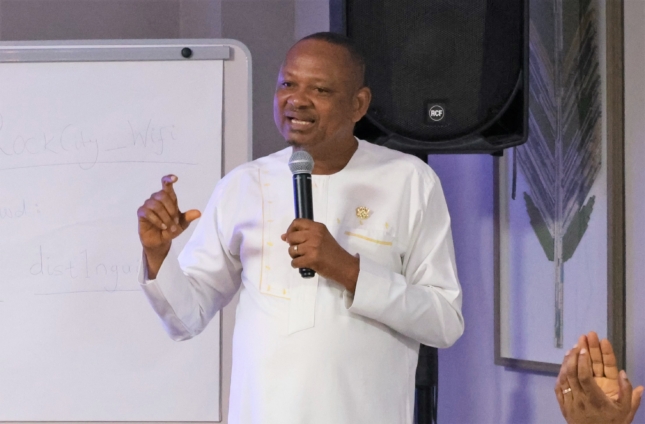The Health Ministry wants a strong collaboration with academia to prepare graduates for meaningful contributions to the health sector.
Director of Human resources, Dr. Kwesi Asabir observed the gap between academia and Ministry has produced graduates with misplaced roles.
“At times, there’s that barrier between academia and practice. Academia will come out with appropriate ideas but the implementer, ministry is cut off. So people go through an excellent programme, they come to the ministry and we tell them, we don’t have a place for you,” he revealed.
Dr. Asabir made this comment at a retreat organized by Mastercard Foundation Africa Higher Education Health Collaborative in Kwawu.
The primary objective of the Mastercard Foundation Africa Higher Education Health Collaborative is to build and strengthen the capacity of healthcare students and professionals to meet the growing demand for Primary Health Care (PHC) in Ghana.
KNUST is one of the eight partners of the Higher Education Collaborative in Health with the aim to contribute to all three pillars of the health strategy: Health Employment, Health Entrepreneurship, and Health Ecosystems.
The Health Entrepreneurship pillar aims to develop an entrepreneurial mindset and culture that supports entrepreneurs to create meaningful innovations and employment opportunities in the health sector.
The Health Ecosystem pillar also aims to train and prepare a new generation of talented professionals with the broad sets of skills required to drive equitable and inclusive growth.
The Health Employment pillar also aims to expand and improve current capacities to train primary healthcare workers. This workshop is under the auspices of the health employment pillar.
Dr. Asabir stressed the need to approach health as business for sustainable economic development.
“We always think of it as a social sector. We should look at healthcare as a business venture. If the population is not healthy, we can develop a nation,” he said.
The 3-day retreat provided the platform to forge effective strategies to fulfil the Collaborative’s ideals in the coming years.
The Principal Investigator of the Africa Higher Education Health Collaborative, Prof. Ellis Owusu-Dabo emphasized the importance of equity and diversity in the operations of the Collaborative.
“For the Collaborative, issues of gender and persons with disabilities are very critical to us. It’s important we put some of these things into action as a country,” he said.
Latest Stories
-
George Twum-Barimah-Adu pledges inclusive cabinet with Minority and Majority leaders
42 mins -
Labourer jailed 5 years for inflicting cutlass wounds on businessman
43 mins -
Parliament urged to fast-track passage of Road Traffic Amendment Bill
43 mins -
Mr Daniel Kofi Asante aka Electrician
44 mins -
Minerals Commission, Solidaridad unveils forum to tackle child labour in mining sector
49 mins -
Election 2024: Engagement with security services productive – NDC
50 mins -
Retain NPP for the good of Ghana – Rebecca Akufo-Addo
50 mins -
‘Let’s work together to improve sanitation, promote health outcome’ – Sector Minister urges
51 mins -
Ellembelle MP cuts sod for six-unit classroom block at Nkroful Agric SHS
55 mins -
‘I’ll beat the hell out of you if you misbehave on December 7’ – Achiase Commanding Officer
57 mins -
AFPNC leads the charge on World Prematurity Day 2024
1 hour -
Court remands unemployed man over theft of ECG property
1 hour -
Election security rests solely with the police – Central Regional Police Command
1 hour -
NCCE engages political youth activists at Kumbungu on tolerance
1 hour -
‘In Mahama’s era students lacked chalk, but are now receiving tablets’ – Bawumia
1 hour

